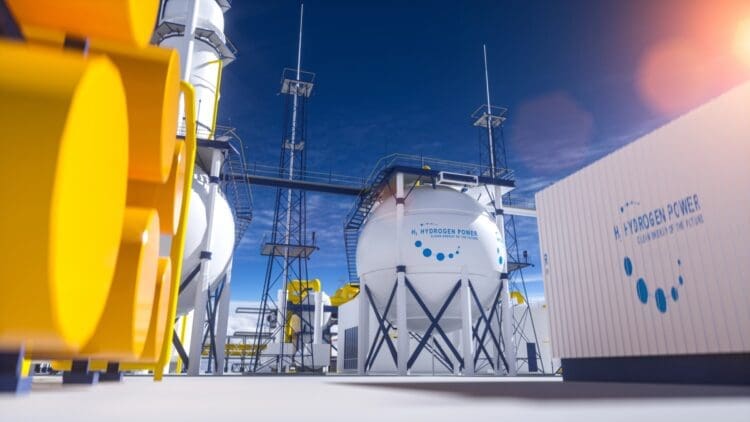The key stakeholders of the H2Med alliance met in Germany recently and announced the addition of 40 new members as part of the alliance’s expansion ambitions. The event in Palais Populaire in Berlin saw the alliance underscore the importance of global cooperation in the hydrogen sector as well as introduce the new members from a vast number of countries. The event was a star-studded affair that saw some of the highest members of European politics as they aimed to invigorate the hydrogen sector in Europe.
The European Union’s President stated the importance of the “Energy Highway”
The H2med Alliance, which was established in December 2024 by the five original members, namely REN (Portugal), Enagás (Spain), NaTran and Teréga (France), and OGE (Germany), aims to promote hydrogen usage in the region through strategic investments and policies.
The event in Berlin saw some of the highest representatives of government across the European Union. Of the members who attended the event, representatives included:
- Mr Stefan Rouenhoff, Parliamentary State Secretary of the German Federal Ministry of Economic Affairs and Energy
- Mr Manuel Garcia Hernandez, General Director of Energy Policy and Mines of Spain
- Mr Laurent Kueny, Director for Energy at the Ministry of Economics and Industrial Sovereignty of France
- Mr Paulo Carmona, General Director of Energy and Geology of Portugal
At the event, Ms Mechthild Wörsdörfer, Deputy Director-General for Energy at the European Commission, emphasized the importance of prioritizing the “Energy Highway” that the EU President, Ursula von der Leyen, highlighted during her State of the Union address on the 10th of September.
The alliance has emphasized the importance of global cooperation for the hydrogen sector
Hydrogen is the most abundant element in the universe, and the EU is acutely aware of that truth. Unlike the United States, which has taken drastic measures to roll back the progress made in the renewable energy sector by the Biden administration, the Europeans have made a serious commitment to hydrogen.
The endorsement of hydrogen is backed by a grant under the Connecting Europe Facility for Energy strategy. Among the projects that could benefit from the alliance, adding new members are Portuguese, Spanish, and French backbones, as well as the interconnectors CelZa (between Portugal and Spain) and BarMar (between Spain and France).
The meeting in Germany saw the alliance expanding its membership number by 40 to a grand total of 49. During the meeting, members emphasized the importance of cooperation among the key stakeholders in the corridor, which could improve the standing of hydrogen globally.
The International Energy Agency reports that despite significant investments in the sector, hydrogen output for the next few years is set to drop by a massive 25%. If that does happen, more work will be needed from the alliance to ensure the stakeholders in the hydrogen sector are not adversely affected.
The H2Med alliance was established to provide crucial backing for the hydrogen sector across several European nations that make up the corridor, and if they are successful, hydrogen could become the fuel of tomorrow.
The H2med Alliance will continue to play a vital role in the adoption of hydrogen in Europe
Europe is made up of several exceedingly small countries, and as such, requires a unique approach to the energy sector. For the past few decades, the nations of Europe have struggled to meet an increase in energy demands from their citizens. This led to the establishment of the H2Med alliance in December of 2024, and the alliance has taken significant steps to improve the standing of hydrogen in Europe. One would expect the nations of Europe to jump on board the hydrogen train; however, several countries have seen significant projects being scrapped due to poor investment.





